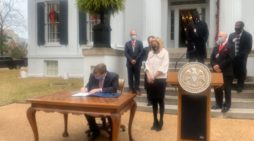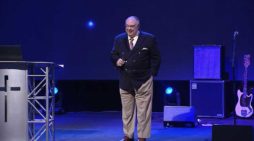The News Travels Fast
It’s hard to imagine that anything could rival in importance, interest, and excitement the events that occurred during the hours and days immediately following the birth of Christ. But even several months after the amazing stir created by the angels and shepherds to herald His arrival, people were still hearing about and responding to news of Christ’s birth. By that time, men of wealth and influence were reacting to the news coming out of Bethlehem. But was their response any more uniformly noble than that of the shepherds and common people we saw in our previous chapter? Not necessarily. Actually, as you will see, the response of some powerful people was outwardly much worse than the fleeting, indifferent curiosity the average people had to the shepherds’ witness. But as with the shepherds and Jesus’ parents, some also rendered genuine faith and worship to the newborn King.
In fact, a passage in the other detailed Gospel account of our Lord’s birth (Matt. 1:18–2:23) contains examples of three basic responses people of every locale and historical era have typically had toward Him: hostility, indifference, and worship. Matthew 2:1–12 outlines the attitudes this way in the familiar story of the wise men, or Magi:
Now after Jesus was born in Bethlehem of Judea in the days of Herod the king, behold, wise men from the East came to Jerusalem, saying, “Where is He who has been born King of the Jews? For we have seen His star in the East and have come to worship Him.”
When Herod the king heard this, he was troubled, and all Jerusalem with him. And when he had gathered all the chief priests and scribes of the people together, he inquired of them where the Christ was to be born.
So they said to him, “In Bethlehem of Judea, for thus it is written by the prophet:
‘But you, Bethlehem, in the land of Judah,
Are not the least among the rulers of Judah;
For out of you shall come a Ruler
Who will shepherd My people Israel.’”
Then Herod, when he had secretly called the wise men, determined from them what time the star appeared. And he sent them to Bethlehem and said, “Go and search carefully for the young Child, and when you have found Him, bring back word to me, that I may come and worship Him also.”
When they heard the king, they departed; and behold, the star which they had seen in the East went before them, till it came and stood over where the young Child was. When they saw the star, they rejoiced with exceedingly great joy. And when they had come into the house, they saw the young Child with Mary His mother, and fell down and worshiped Him. And when they had opened their treasures, they presented gifts to Him: gold, frankincense, and myrrh.
Then, being divinely warned in a dream that they should not return to Herod, they departed for their own country another way.
The Magi Seek Jesus
The story of the wise men, or Magi, is a well-known Bible narrative, yet over the centuries a certain amount of myth and tradition has clouded and romanticized it. For instance, a medieval understanding of the story claimed the men were kings, three in number and named Casper, Balthazar, and Melchior. Some believed they represented Noah’s three sons; therefore, paintings and drawings depicted one as an Ethiopian. One twelfth-century church leader even claimed to have discovered the Magi’s skulls.
However, the only credible facts we know about those men are the few details Matthew provided. He did not choose to tell us their precise number, names, means of transportation, or the specific areas they were from. Matthew’s original audience would have known the wise men were from the East, because people generally knew such Magi made up the priestly-political class of the Parthians—who resided east of Palestine.
The Magi date from the seventh century b.c., when they were a tribe within the Median nation of eastern Mesopotamia. They became skilled in astronomy and astrology (which were more closely associated disciplines in those days) and had a sacrificial system somewhat similar to the Mosaic one. We derive the English words magic and magician from the name magi.
The Book of Daniel reports that the Magi, with their knowledge of science, agriculture, mathematics, history, and the occult, were among the highest ranking, most influential officials in the Babylonian Empire. Because of Daniel’s own high position and place of respect among them (Dan. 2:24, 48), the Magi undoubtedly learned much from him about the true God and His plans for the Jews through the coming Messiah. Because many Jews remained in Babylon after the Exile, it’s likely those teachings remained strong in the region even until New Testament times.
The “wise men from the East” (Matt. 2:1) who came to see Jesus were true Magi who had learned about the Jews’ messianic expectations, likely from the prophetic writings such as Daniel’s. They were probably among the many God-fearing Gentiles who lived in the Middle East and Mediterranean areas at that time, some of whom—such as Cornelius and Lydia (Acts 10:1–2; 16:14)—are mentioned in the New Testament.
Matthew tells us that when the Magi—whether three or more, he doesn’t specify—arrived in Jerusalem, they began the final stage of their search for the Christ child by asking, “‘Where is He who has been born King of the Jews?’” (2:2). The Greek grammar of that question suggests the men went around the city posing that inquiry to whomever they met. They evidently assumed that if they as foreigners knew about the historic birth, anyone in Judea, and especially Jerusalem, would know where the special baby lived. It was no doubt shocking to the Magi when no one seemed to know what they were talking about.
We don’t know how God revealed the birth of Christ to the Magi. Matthew simply says that He gave them the sign of “His [Christ’s] star in the East.” The identity of that star has stirred perhaps more speculation over the years than has the identity of the men who saw it. Some scholars have proposed it was Jupiter, the largest planet in the solar system. Other commentators have insisted it was the conjunction of Jupiter and Saturn, which formed the sign of the fish, the symbol for Christianity later adopted by the early church. Other conjecture regarding the star’s identity has concluded it was probably some other astronomical rarity such as a low-altitude meteor or erratic comet. Some writers have even gone so far as to suggest the phenomenon was some inner vision the Magi had of a “star of destiny” that symbolized mankind’s hopes for a savior.
Because Scripture does not explain or identify the star, we can’t be dogmatic about its character. It may simply have been the glory of the Lord—the same as the shepherds saw earlier when the angels appeared to them (Luke 2:9). The Bible often equates the manifestation of God’s glory with some form of light (Exod. 13:21; 24:17; 34:30; Matt. 17:2; Acts 9:3; 26:13; Rev. 1:16; 21:23). When Moses wrote the Pentateuch, he referred to Messiah as “‘a Star [that] shall come out of Jacob’” (Num. 24:17). At the end of the New Testament, Christ called Himself “‘the Bright and Morning Star’” (Rev. 22:16).
Therefore it’s plausible to say that the extremely bright star, visible only to those for whom God intended it—such as the Magi—was most likely the glory of God. Just as the cloudy pillar of His Shekhinah glory gave light to Israel but darkness to Egypt (Exod. 14:20), God allowed only the wise men to see His glory, depicted in the star’s brilliant light over Bethlehem.
It’s also quite likely that the Magi were not following the star their entire journey because they had to ask where Jesus was born. It was not until the Jews told them of the prophesied place of Christ’s birth that the star reappeared and guided them on to Bethlehem and the exact spot where the baby lay (Matt. 2:9).
The Magi made their long journey west to Palestine for one stated purpose: They wanted to find the newborn Savior and worship Him. “Worship” expresses the idea of falling down and kissing the feet or the hem of the garment of the one honored. That definition in itself verifies that the wise men were true seekers after God. Though they had limited spiritual light, they immediately recognized God’s voice when He spoke to them, and they responded in faith and obedience. The Magi had the type of genuine seeking hearts that God promises always to reward (Jer. 29:13).
Herod’s Anxiety Toward Christ
Herod’s response to news of Christ’s birth was the very opposite of the wise men’s: “When Herod the king heard this, he was troubled, and all Jerusalem with him” (Matt. 2:3). The king’s anxiety, in contrast to the Magi’s joy and eagerness, is understandable. He had expelled the Parthians from Palestine but was again battling Jewish zealots who wanted their country free from Roman domination. Herod was known as a man of intense jealousy and paranoia, so any mention of a potentially rival king of the Jews caused him much fear and anger.
This Herod, known as “the Great,” is the first of several New Testament Herods. Under their occupation of Judea, the Romans had appointed his father, Herod Antipater, governor of the region. Antipater then managed to get his son named prefect of Galilee. As prefect, Herod successfully quelled the rebellious Jewish guerillas that still opposed Rome, but he had to flee to Egypt when the Parthians invaded Palestine. Herod returned to Palestine a short while later with stronger backing from Rome as the newly proclaimed “king of the Jews.” That’s when he fought the Parthians for two years, defeated them, and set up his own kingdom.
Because the Magi were either Parthians or closely associated with the Parthians, Herod likely had an extra cause for concern. He no doubt viewed the impressive entourage (it probably numbered more than the traditional “three kings”), with its wealth, prestige, and powerful-looking royal demeanor, as a renewed political and military threat from the East.
The Magi’s claim to have come simply to worship the newborn King and their earnest desire to find Him obviously did not affect Herod positively. Because it was then common for Magi and other influential leaders to worship kings and emperors, Herod would have cynically thought their mission was as much political as religious.
Herod’s first response to news of the wise men’s arrival was to summon the Jewish leaders, the chief priests and scribes, and find out from them where the Messiah was to be born. Though Herod was an Idumean (Edomite), he knew Jewish beliefs and customs rather well and associated the title “King of the Jews” with the Jewish Messiah, or Christ. But his awareness of the Jews’ hope for a Messiah did not translate into saving faith in Jesus Christ. Instead, the king gave the Magi a disingenuous rationale for wanting to hear from them the precise location and true identity of the infant Jesus—“‘that I may come and worship Him also’” (Matt. 2:8).
Herod’s true purpose in wanting to find out where Jesus lived became starkly clear in how he actually responded when the Magi did not report back to him. The Magi were simply obedient to the Lord’s leading (2:12), but Herod obeyed his depraved nature and ordered his soldiers to slaughter every male child two years old and under in the vicinity of Bethlehem (v. 16). Of course, by perpetrating such a heinous act, Herod displayed his real desire of wanting to “guarantee” that no newborn king would rival his authority.
Like many hardhearted people today, Herod’s immediate response of hateful rebellion and opposition toward Christ shows he really wanted to know nothing of God’s way except how to eliminate it. Such an attitude reveals a heart of pride, self-interest, and a greed for power and prestige. Jesus Himself later warned about the consequences of that approach: “‘For whoever desires to save his life will lose it… . For what profit is it to a man if he gains the whole world, and loses his own soul? Or what will a man give in exchange for his soul?’” (Matt. 16:25–26).
The Indifference of the Religious Leaders
There is a third response people have to Christ—indifference. In the story of the wise men, the Jewish religious leaders, composed primarily of the chief priests and scribes, typify such an attitude.
All Jewish priests were of the priestly tribe of Levi, but the chief priests, including the high priest, the captain of the temple, and other temple officials, were the most influential ones. They formed a priestly aristocracy in Israel and in certain ways were similar to the Magi, mainly because they wielded considerable political as well as religious power.
The scribes were primarily Pharisees and were also referred to as the lawyers. They had much prestige and respect among the Jews, who recognized them as scholars and authorities concerning scriptural and traditional Jewish Law. Except for the Sadducees, they held a conservative, literal view of Scripture, and they were very legalistic regarding the ceremonial and moral Law.
As we noted above, Herod called those leaders together to learn more specifically what Jewish Scripture taught about the birthplace of Messiah. The chief priests and scribes answered Herod’s question by quoting Micah 5:2 and referring partially to Genesis 49:10: “So they said to him, ‘In Bethlehem of Judea, for thus it is written by the prophet: “But you, Bethlehem, in the land of Judah, are not the least among the rulers of Judah; for out of you shall come a Ruler who will shepherd My people Israel”’” (Matt. 2:5–6). That answer was consistent with the concept of a shepherd’s being a ruler and therefore fit the intent of Micah’s original prophecy. He foresaw that Christ would be the legitimate King of the Jews and also the final and perfect Ruler of Israel.
In human terms, it was to their credit that the unbelieving Jewish leaders were aware that the Old Testament clearly identified a historical figure, the Son of Man, who would be born in Bethlehem and who would come to rule Israel—the Messiah. But sadly, they refused to accept Jesus as that Messiah, not when He was born, not when He ministered among them, and not when He suffered, died, and rose from the grave.
That group of religious experts did not have a perfect idea of what Christ would be like or of what He would do, but they certainly knew enough to recognize Him when He came. Thus, they knew they should follow the Magi’s example and worship the newborn Messiah in Bethlehem. They had an intellectual knowledge of God’s promises, but the chief priests and scribes were spiritually unmoved when the wise men, prompted by the extraordinary sign of the star, signaled fulfillment of His Word.
Unquestionably, the Jewish leaders are examples of those who are essentially indifferent to God and His program. The prophet Jeremiah lamented over the attitude of such people: “Is it nothing to you, all you who pass by?” (Lam. 1:12). They do not believe or obey what they know of God but at best give Him only lip service. Such apathetic people almost invariably become like Herod and display their hostility toward Christ. That’s because indifference to God is simply concealed hatred and delayed rejection.
The Magi Worship Christ
The wise men, in contrast to Herod and the Jewish leaders, had the kind of attitude that pleases God. They responded to Jesus Christ the way He desires all people to respond—in adoration and worship. Because they had little of the written Word of God, the Magi had much less knowledge of the true God than did the chief priests and scribes. However, those Gentile leaders were remarkably responsive to God’s Spirit, and whatever knowledge of God and Christ He revealed to them they believed and followed.
The Magi went on to Bethlehem, not merely because Herod ordered them to, but because finally they were sure they would find the Christ child there. Presumably Herod told them what the religious leaders told him regarding the location of Christ’s birth. But the Lord soon gave them much more graphic assistance and confirmation that they were headed in the right direction. “Behold, the star which they had seen in the East went before them, till it came and stood over where the young Child was” (Matt. 2:9). (That the star hovered directly over the house where Jesus and His family then lived—an impossible action for a normal star—is another strong indicator that it was not an astronomical body, but instead represented the glory of God.)
The men from the East were ecstatic to see the extraordinary star again: “When they saw the star, they rejoiced with exceedingly great joy” (v. 10). Matthew’s description uses extra superlatives as if to emphasize the degree of exhilaration the Magi felt. Such emotions reveal once again their uniquely strong interest in finding and worshiping the newly arrived King.
By the time the wise men were journeying to Bethlehem, Jesus and His parents had moved from the travelers’ shelter into a house, where they lived until God gave them further direction. There the men finally saw the Child they had traveled so far to find, and they immediately “fell down and worshiped Him” (v. 11). Charles Wesley captured the essence of their experience in these lines from his beautiful Christmas hymn: “Veiled in flesh the Godhead see; hail the incarnate deity; pleased as man with men to dwell, Jesus our Emmanuel.”
As an expression of the Magi’s grateful worship, “they presented gifts to Him: gold, frankincense, and myrrh” (v. 11). Gold had long been and still is the universal symbol of material wealth and value. It was also a symbol of nobility and royalty, and thus the Magi were appropriately giving Christ the King royal gifts of gold.
Frankincense was an expensive, sweet-smelling incense used for only the most special occasions. Traditionally, it was the incense of deity. In Old Testament times, the Jews stored it in a special chamber in front of the temple and sprinkled it on certain offerings to symbolize the people’s desire to please the Lord.
Myrrh was a valuable perfume that some interpreters say represented the gift for a mortal. Therefore its role among the Magi’s gifts was to underscore Christ’s humanity. The Gospels later record that people mixed myrrh with wine to make an anesthetic (Mark 15:23). Myrrh was also used with spices to prepare bodies for burial, even Jesus’ body (John 19:39).
With their mission of finding and worshiping the King of the Jews completed, God warned the Magi in a dream not to report back to Herod. So they returned to the East by a route that allowed them to completely escape the king’s notice. Because of the nature and size of the Magi’s traveling party, that feat was not easily accomplished. But the Lord guided their steps and granted them wisdom to succeed, further indicating that the wise men’s dramatic role in marking the birth of Christ was by divine design.
The Magi’s exemplary performance again reminds us that their response to Jesus’ birth was the God-honoring one, in contrast to the responses of Herod and the religious leaders. The Magi believed in God’s Son, the King of kings, when they heard about Him. Such people today might have little divine light initially, but because they realize it is His light, they respond to the Holy Spirit (2 Cor. 3:6), repent, believe, obey, worship, and live.[1]
[1] MacArthur, J. F., Jr. (2001). God in the manger: the miraculous birth of Christ (pp. 99–108). Nashville, TN: W Pub. Group.






















 RALEIGH, N.C. — North Carolina Gov. Roy Cooper recently signed a proclamation marking “Gender Expansive Parents’ Day” to “honor” parents that don’t identify “exclusively as masculine and feminine.” The recognition has generated opposition from at least one Christian group in the state, which says that the decree undermines the God-designed roles of a father and…
RALEIGH, N.C. — North Carolina Gov. Roy Cooper recently signed a proclamation marking “Gender Expansive Parents’ Day” to “honor” parents that don’t identify “exclusively as masculine and feminine.” The recognition has generated opposition from at least one Christian group in the state, which says that the decree undermines the God-designed roles of a father and… WASHINGTON — A man who identifies as a woman says he was only being sarcastic as he responded to rumors that Joe Biden had selected him to be the next Secretary of Education. The misinformation, which apparently began with a social media post from an obscure Twitter user, has been believed and reposted online by Christians and non-Christians alike. The matter…
WASHINGTON — A man who identifies as a woman says he was only being sarcastic as he responded to rumors that Joe Biden had selected him to be the next Secretary of Education. The misinformation, which apparently began with a social media post from an obscure Twitter user, has been believed and reposted online by Christians and non-Christians alike. The matter… (Morning Star News) – A 38-year-old mother of three in eastern Uganda had secretly put her faith in Christ for three months before her Muslim husband found two Bibles in her suitcase. On that day, Nov. 21, in Bugiri District’s Matovu village, Zubeda Nabirye’s husband asked her why she had the two Bibles, one in English and the other in their tribal language….
(Morning Star News) – A 38-year-old mother of three in eastern Uganda had secretly put her faith in Christ for three months before her Muslim husband found two Bibles in her suitcase. On that day, Nov. 21, in Bugiri District’s Matovu village, Zubeda Nabirye’s husband asked her why she had the two Bibles, one in English and the other in their tribal language…. JACKSON, Miss. — Mississippi Gov. Tate Reeves announced on Wednesday that he is declaring this Sunday, Dec. 20, a statewide “Day of Prayer, Humility and Fasting” to seek God before the beginning of a new year. “As we close out this year, I felt the need to go to God in prayer for our state,” he stated during a press conference outside the governor’s mansion. “We…
JACKSON, Miss. — Mississippi Gov. Tate Reeves announced on Wednesday that he is declaring this Sunday, Dec. 20, a statewide “Day of Prayer, Humility and Fasting” to seek God before the beginning of a new year. “As we close out this year, I felt the need to go to God in prayer for our state,” he stated during a press conference outside the governor’s mansion. “We… (Fox News) — Orange County, Calif., Sheriff Don Barnes pushed back against an “absurd” order from a local Superior Court judge ordering the release of 1,800 inmates, including some who are locked up for murder and child molestation, due to the coronavirus. “I have no intention of doing that, of releasing those individuals back into the community. I think…
(Fox News) — Orange County, Calif., Sheriff Don Barnes pushed back against an “absurd” order from a local Superior Court judge ordering the release of 1,800 inmates, including some who are locked up for murder and child molestation, due to the coronavirus. “I have no intention of doing that, of releasing those individuals back into the community. I think… ROME — The Vatican’s Apostolic Penitentiary has issued a decree granting special plenary indulgences, that is, full elimination of temporal punishment in Purgatory for a forgiven sin, during the “Year of St. Joseph.” The practice, which dates back to medieval times, has been deemed unbiblical by evangelicals. On Dec. 8, Jorge Bergoglio, also known as “Pope…
ROME — The Vatican’s Apostolic Penitentiary has issued a decree granting special plenary indulgences, that is, full elimination of temporal punishment in Purgatory for a forgiven sin, during the “Year of St. Joseph.” The practice, which dates back to medieval times, has been deemed unbiblical by evangelicals. On Dec. 8, Jorge Bergoglio, also known as “Pope… LONDON (Premier Christian News/Press Association) — A mother whose five-year-old daughter is in a vegetative state and at the center of a life-support treatment dispute has told a High Court judge that she will not give up. Doctors treating Pippa Knight at the Evelina Children’s Hospital in London say life-support treatment should end and hospital bosses have…
LONDON (Premier Christian News/Press Association) — A mother whose five-year-old daughter is in a vegetative state and at the center of a life-support treatment dispute has told a High Court judge that she will not give up. Doctors treating Pippa Knight at the Evelina Children’s Hospital in London say life-support treatment should end and hospital bosses have… DALLAS — The CEO of the Texas-based Institute for Creation Research (ICR), Dr. Henry Morris III, died on Saturday in the midst of a battle with COVID-19. He was 78. “It is with heavy hearts that the Institute for Creation Research announces the homegoing of our CEO, Dr. Henry M. Morris III. He went to be with his Lord on December 12, 2020, after a brief illness…
DALLAS — The CEO of the Texas-based Institute for Creation Research (ICR), Dr. Henry Morris III, died on Saturday in the midst of a battle with COVID-19. He was 78. “It is with heavy hearts that the Institute for Creation Research announces the homegoing of our CEO, Dr. Henry M. Morris III. He went to be with his Lord on December 12, 2020, after a brief illness… Photo Credit: Andrew Shiva/Wikipedia (Evangelical Focus) — The Hungarian Parliament has passed several amendments to the country’s constitution to better protect the definition of marriage. Changes in the Fundamental Law of Hungary (the official name of the Constitution) included a “de facto” ban of adoption of children by homosexual couples. The…
Photo Credit: Andrew Shiva/Wikipedia (Evangelical Focus) — The Hungarian Parliament has passed several amendments to the country’s constitution to better protect the definition of marriage. Changes in the Fundamental Law of Hungary (the official name of the Constitution) included a “de facto” ban of adoption of children by homosexual couples. The… Photo Credit: Ryan McGuire/Pixabay WASHINGTON — A Democratic congresswoman has teamed up with a Republican congressman to introduce a bill in the U.S. House that would prohibit biological men who identify as women from competing in girls’ sports. Rep. Tulsi Gabbard of Hawaii and Rep. Markwayne Mullin of Oklahoma announced H.R. 8932, the Protect Women’s…
Photo Credit: Ryan McGuire/Pixabay WASHINGTON — A Democratic congresswoman has teamed up with a Republican congressman to introduce a bill in the U.S. House that would prohibit biological men who identify as women from competing in girls’ sports. Rep. Tulsi Gabbard of Hawaii and Rep. Markwayne Mullin of Oklahoma announced H.R. 8932, the Protect Women’s…



